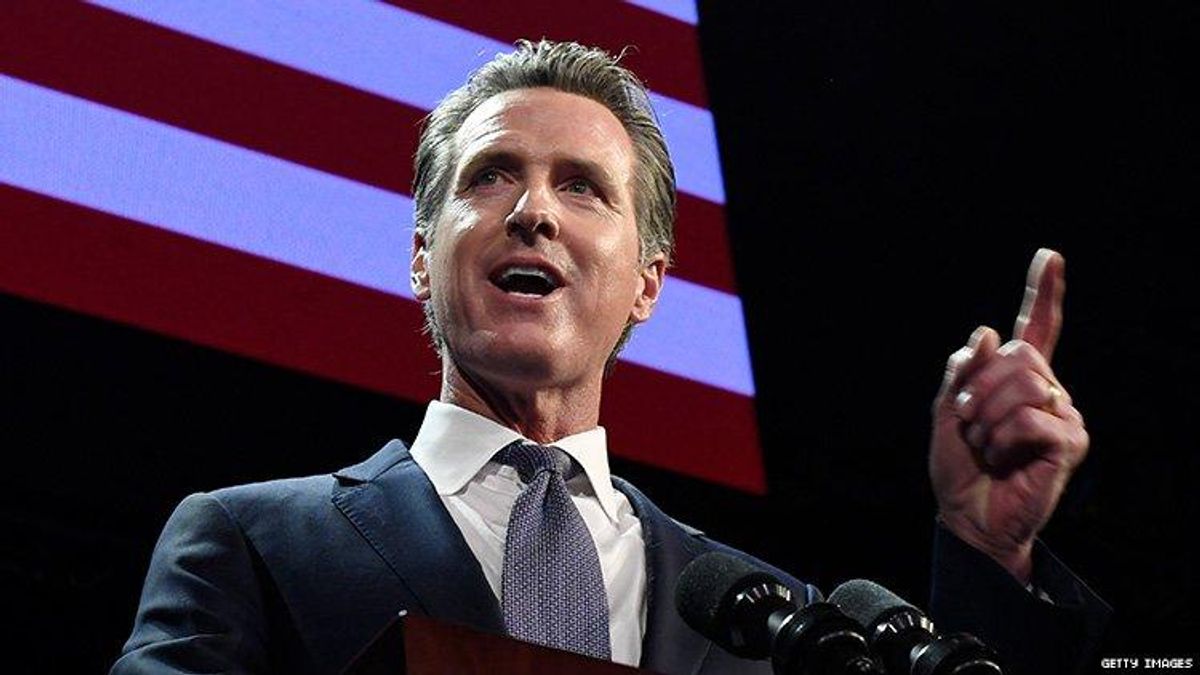Prevention
California Makes PrEP and PEP Available Without Prescription

The state is the first in the nation to expand access this way, something advocates say is key for rural and minority populations.
October 08 2019 6:16 PM EST
By continuing to use our site, you agree to our Privacy Policy and Terms of Use.

The state is the first in the nation to expand access this way, something advocates say is key for rural and minority populations.
Pharmacists in California will be able to dispense HIV prevention drugs without a prescription beginning next year under a bill signed into law Monday by Gov. Gavin Newsom, making the state the first in the nation to allow such an arrangement.
Senate Bill 159 will expand access to the prevention drugs, its backers say, as the need to obtain a prescription is a barrier for many people. The bill authorizes pharmacists to furnish at least a 30-day supply and up to a 60-day supply of drugs used for pre-exposure prophylaxis, or PrEP, without a prescription, according to a press release from Equality California, a cosponsor of the bill. It also allows them to provide a full course of drugs used for post-exposure prophylaxis, of PEP.
PrEP involves the daily consumption of a drug by people who are HIV-negative to prevent them from becoming infected with the virus if exposed to it. PEP is the administration of drugs to prevent HIV infection after a person has been exposed. The drugs must be taken within 72 hours after exposure and continued for 28 days.
Two drugs, Truvada and Descovy, both marketed by Gilead Sciences, have been approved by the Food and Drug Administration for use as PrEP. A generic version of Truvada is expected to be available later this year. For PEP, health groups recommend a combination of Truvada and Isentress, although if patients have a problem with these drugs, others can be considered.
The bill also prohibits insurance companies from subjecting anti-HIV drugs, including those used for PrEP and PEP, to prior authorization or “step therapy,” which requires a patient to take cheaper alternatives to the drugs prescribed. An exception would be made if an equivalent drug is available. And insurers would be required to cover the drugs, with some specified exceptions.
Pharmacists who dispense PrEP and PEP drugs without a prescription must first complete a training program approved by the California State Board of Pharmacy. When providing the drugs, they must determine that the patient meets the clinical criteria for use, as established by federal government guidelines.
The California Health Benefits Review Program estimates that the new law will increase the use of PrEP and PEP by 2 percent in its first year in effect, preventing 25 new cases of HIV. It goes into effect January 1.
Access to PrEP and PEP is particularly limited in rural parts of the state and among minority populations, and SB 159 will help improve this situation, according to Equality California. “The HIV epidemic is still a pressing issue today — especially for LGBTQ people of color and folks in rural communities,” Executive Director Rick Zbur said in the press release. “But with Governor Newsom’s signature, SB 159 is a giant step forward in getting to zero transmissions, zero deaths and zero stigma. By increasing access to lifesaving HIV prevention medication, California — unlike the White House — is leading the country in the race to eliminate HIV. We owe a debt of gratitude to Senator [Scott] Wiener and Assemblymember [Todd] Gloria for their leadership and tireless advocacy.”
Wiener and Gloria were lead authors of the bill.
In addition to Equality California, SB 159 was cosponsored by the San Francisco AIDS Foundation, APLA Health, the Los Angeles LGBT Center, and the California Pharmacists Association. In addition to Wiener and Gloria, it was authored by Sens. Steven Glazer and Jeffrey Stone, and Assemblymembers Mike Gipson and David Chiu. It passed both chambers of the legislature with bipartisan, nearly unanimous support.
“Use of PrEP and PEP in California remain far too low, particularly in communities most affected by HIV,” APLA Health CEO Craig E. Thompson added in a press release from his organization. “SB 159, which passed the California Legislature with overwhelming bipartisan support, will increase the places where people can access these medications, increase the number of healthcare professionals who can provide them and remove onerous and unnecessary insurance barriers. We applaud Governor Newsom for signing SB 159 into law.”